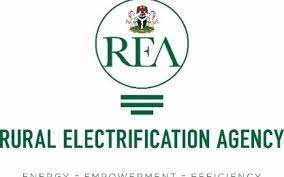The Government of Fiji has granted value added tax (VAT) exemption to insurance firms for premiums on climate and disaster risk parametric insurance products for the people and corporate entities in the country.
The fiscal initiative represents the first time any government in the country is making efforts to make disaster insurance more affordable for the people. Fiji has been seriously devastated by cyclones over the years.
Already, the United Nations Capital Development Fund (UNCDF) has commended the Fijian Government’s fiscal initiative, noting that its specific research on Fiji has “identified insurance as an important tool for managing risks associated with natural hazards.”
To demonstrate its support for the government’s measure, the UNCDF, through the Pacific Insurance and Climate Adaptation Programme (PICAP), has launched Fiji’s first parametric micro-insurance product, which is now being rolled out to cover smallholder farmers, fishers, and market vendors in the country.
According to a news report by artemis.bm on the measure, the VAT exemption is expected to provide much-needed financial relief to those that can benefit the most from parametric climate and disaster insurance protection, helping to make the premiums more affordable and so is deemed likely to expand uptake.
Commenting on the government’s policy initiative, Fiji’s Attorney-General and Minister for the Economy, Aiyaz Sayed-Khaiyum, said: “To support this groundbreaking initiative, VAT exemption will be provided to all climate and disaster risk micro-insurance products
“By making these products more affordable, we extend them to low-income and vulnerable sectors previously beyond the reach of mainstream insurance”, the minister added.
According to the government’s roll-out schedule, the new parametric micro-insurance product will initially cover 500 sugarcane, rice, coconut and root crop farmers, fishers and market vendors after which the parametric insurance program will be scaled up to reach 1000 protection buyers by the start of the 2021/2022 cyclone season in November.
In his remarks, PICAP Programme Manager, Krishnan Narasimhan, further clarified: “The VAT exemption on parametric insurance premiums is a landmark policy initiative and we are grateful to the Government for accepting our submission in this regard.
“It will directly benefit insurance customers, in particular small-holder farmers, fishers and market vendors as they save on the tax component of insurance premiums and in these challenging times, that is indeed a big saving.
“This announcement also sends a strong signal to the insurance industry, and the private sector, that Government is highly supportive of this important initiative and will catalyze the market towards innovation”, Narasimhan stressed.
The parametric insurance product offers cyclone or flood cover, with maximum coverage of $1,000, with annual premiums of $100, so just less than two dollars per-week.
The news medium further clarified: “While small, in premium terms, the expansion of parametric insurance to cover many people that typically do not buy insurance protection at all, is positive for the expansion of disaster risk transfer in the region, ultimately resulting in more risk ceded to private insurance and reinsurance markets over-time, but more importantly resulting in more people and livelihoods being covered on a parametric trigger basis against damaging natural catastrophe risks.
“The product is designed to settle quickly as well, with all parametric payouts expected to be made within 15 days.
“These parametric micro-insurance products are set to be rolled out to other Pacific islands and it’s likely the VAT exemption may be given by their governments as well, as the recognition of the need for disaster insurance protection grows.
“This is another positive example of the role of parametric insurance in boosting resilience to natural disasters, while the VAT exemption demonstrates another way governments around the world can help to encourage greater uptake, effectively lowering the cost of risk capital to support disaster risk insurance programs at the same time”, it added.




